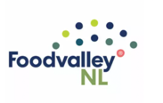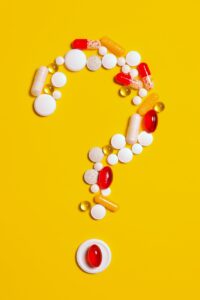The regulatory framework of personalised nutrition
Posted: October 12, 2021 Filed under: Food Comments Off on The regulatory framework of personalised nutrition On 7 October 2021, Food Valley NL published its personalised nutrition position paper. With no less than 53 stakeholders, this paper was written to create a business definition of ‘personalised nutrition’ and to give insights into profitable business models. Axon Lawyers, together with Alie de Boer and Sabrina Röttger-Wirtz from Maastricht University, contributed to this paper a chapter summarizing the three main legal challenges related to personalised nutrition: (1) processing of personalised data, (2) the borderline between certain regulated products and (3) nutrition and health claims. Alie de Boer and Sabrina Röttger-Wirtz wrote earlier about the applicable legal framework to personalised nutrition (see here). In this blogpost, we present an extended version of our contribution to the Food Valley personalised nutrition position paper.
On 7 October 2021, Food Valley NL published its personalised nutrition position paper. With no less than 53 stakeholders, this paper was written to create a business definition of ‘personalised nutrition’ and to give insights into profitable business models. Axon Lawyers, together with Alie de Boer and Sabrina Röttger-Wirtz from Maastricht University, contributed to this paper a chapter summarizing the three main legal challenges related to personalised nutrition: (1) processing of personalised data, (2) the borderline between certain regulated products and (3) nutrition and health claims. Alie de Boer and Sabrina Röttger-Wirtz wrote earlier about the applicable legal framework to personalised nutrition (see here). In this blogpost, we present an extended version of our contribution to the Food Valley personalised nutrition position paper.
Processing of personal data
The essence of personalised nutrition is that it targets individuals, including their phenotypic and/or genotype information, their specific lifestyle and/or their dietary requirements. In order to do so, any supplier of personalised nutrition will have to process personal data, more in particular data concerning health. Under EU standards, personal data is defined as any information related to an identified or an identifiable person (art. 4.1 General Data Protection Regulation, or “GDPR”). While anonymised data does not fall under this definition, the bar for considering data to be anonymised is set very high. Health data are data relating to the physical or mental health of a person, including the provision of health care services, revealing information about his or her health status (art. 4.15 GDPR). Genetic data may also be relevant in the context of personalised nutrition, which are data relating to the inherited or acquired genetic characteristics of a person which give unique information about the physiology or the health of that person (art. 4.13 GDPR). For clarity, the “processing” of personal data includes but is not limited to each of the following actions with respect to such data: collection / storage / structuring / adaptation / consultation / transmission / destruction (art. 4.2 GDPR).
For any supplier of personalised nutrition products and/or solutions, it is of the essence to only process personal data based on a valid legal basis, such as consent (art. 6 GDPR). “Consent” is defined as any freely given, specific, informed and unambiguous indication of a data subject’s agreement with the processing of his/her personal data based on a statement or clear affirmative action (art. 4.11 GDPR). The use of consent as a legal basis for the processing of personal data is further detailed in Guidelines 05/2020 by the European Data Protection Board.
Even in case of a valid legal basis, the processing of health, genetic and other sensitive data remains however prohibited unless specific conditions have been met (article 9 GDPR). This is for instance the case when the data subject has given its specific consent for processing for a specific purpose (art. 9.2 (a) GDPR), or when processing is necessary for scientific purposes (art. 9.2 (j) GDPR).
Suppliers of personalised nutrition products and / or solutions should be able to demonstrate with respect to the personal data of each individual they are processing that the conditions of article 6 and 9 GDPR have been met. This could be done for example by documentation of written consent forms. Other grounds for processing than consent as provided for in article 6 and 9 GDPR may be used as well, although this is not very obvious in a commercial context.
 Borderline products
Borderline products
By definition, any product that is intended for human consumption or which can be expected to be ingested – whether it is processed or not – is considered to be a food product. Due to the effects that products have or due to the nature of presenting their effects, it can become unclear how a particular product should be classified, i.e. whether it falls under the definition of a medicinal product, a medical device, or under other sectorial legislation. In the case of these ‘borderline products’, the decision on a product’s classification must be taken on a case-by-case basis. In the case of personalised nutrition products, the way in which their effect on health is communicated (for example through claims, further described in paragraph iii) is decisive for the qualification of the product being offered. For example, such a product could qualify as a medicinal product either by way of presentation or by function. A medicinal product is understood to be any substance or combination of substances presented for treating or preventing a disease in human beings (art. 1.2 Medicinal Products Directive). A product qualifies as a medicinal product by presentation if consumers are entitled to expect it to have a medicinal effect (even without a genuine therapeutic or medicinal effect – see Van Bennekom case (1983) of the European Court of Justice (“ECJ”)). A product is a medicinal product by function if it is capable of exerting a pharmacological action (see ECJ Hecht-Pharma case (2009)). Thus, food products that are customised to the nutritional needs of a specific individual and are claimed to treat, cure or alleviate the symptoms of a disease may be classified as medicinal products rather than as foods.
Personalised nutrition products or solutions, or certain components thereof, could also qualify as a medical device (e.g. a personalised nutrition app) or an in vitro medical device (e.g. a genetic testing kit). Unlike medicinal products that tend to improve physical functions by creating a pharmacologic, immunologic or a metabolic effect, medical devices do not achieve their principal intended action by these means (but they may be assisted in their function by such means). Medical devices are any device, software or other article intended by the manufacturer to be used for specific medical purposes, such as the diagnosis, prevention, monitoring or treatment of a disease (art. 2 Medical Devices Regulation or “MDR”).
 The essential question for the MDR’s applicability is therefore whether the product concerned has a medical purpose or is merely lifestyle or well-being related. For example, an app that provides dietary advice even when based on potential health data is a lifestyle product, but transforms into a medical device where it claims to help address or treat a medical condition like obesity or hypertension. While the intention of the manufacturer of the device is leading for the application of the MDR, it should be noted that only a statement from the manufacturer that a product is not a medical device, or is meant for lifestyle purposes only, is insufficient to escape from this regulation. The intended purpose is inferred from every document and statement that expresses the intended purpose, including advertising and marketing material. See also our earlier blogpost on personalised nutrition as a medical device.
The essential question for the MDR’s applicability is therefore whether the product concerned has a medical purpose or is merely lifestyle or well-being related. For example, an app that provides dietary advice even when based on potential health data is a lifestyle product, but transforms into a medical device where it claims to help address or treat a medical condition like obesity or hypertension. While the intention of the manufacturer of the device is leading for the application of the MDR, it should be noted that only a statement from the manufacturer that a product is not a medical device, or is meant for lifestyle purposes only, is insufficient to escape from this regulation. The intended purpose is inferred from every document and statement that expresses the intended purpose, including advertising and marketing material. See also our earlier blogpost on personalised nutrition as a medical device.
How a personalised nutrition product or solution is qualified determines the applicable regulatory framework and significantly changes the legal requirements. Entrepreneurs should be open to a thorough product qualification analysis before market entry. This does not per se hinder the development of personalised nutrition, but unawareness of the regulatory borderlines can be a pitfall.
Nutrition & health claims
Even if personalised nutrition qualifies as a food product as opposed to medicinal product or medical device, this does not mean that just any health benefit can be claimed on such a product. In fact, there is a pretty strict legal framework that applies here, not only to mandatory food information, but also to voluntary food information. As to the latter, we refer to the framework on health & nutrition claims.
Any statement that describes, suggests or implies that a food product either has certain beneficial nutritional characteristics (nutrition claim) or that its consumption will result in certain health benefits (health claim) is regulated within the EU (Regulation (EC) No 1924/2006). Only pre-authorised claims which are considered substantiated by scientific evidence, based on an assessment by the European Food Safety Authority (EFSA), can be used on foods. Health claims can exclusively be used to address health benefits of foods, and no suggestions or implications can be made that consuming a food may result in treating, curing or alleviating symptoms of a disease (Regulation (EC) No 1924/2006). Only when health benefits are supported by pre-authorised claims and the product meets the conditions of use for this claim, health benefits of personalised nutrition products can be put forward. At the same time, food business operators may consider submitting authorisation requests for new health claims on personalised nutrition products. Currently, it is however uncertain whether referring to genetic predispositions in claims would be considered making a medicinal claim or a health claim (Ballke & Meisterernst, 2014; Röttger-Wirtz & de Boer, 2021). Also, it is unknown whether health claims, currently mainly targeting the general population, could be directed to specific target groups who would benefit from these personalised or tailored products (Röttger-Wirtz & de Boer, 2021).
 Conclusion
Conclusion
Overall, personalised nutrition is subject to extensive regulation under existing EU legislation. In a birds-eye view of legal frameworks applicable globally, data protection, product qualification and the regulation of voluntary food information comprise similar concepts although the detailed rules differ. For example, globally, health claims are allowed to be used in different jurisdictions. Whereas pre-market authorisation is required – in different forms – in some jurisdictions including the EU as well as Australia/New Zealand, this is not necessarily the case for other jurisdictions such as Japan and the United States of America (de Boer & Bast, 2015; Dominguez Diaz et al, 2020). Awareness of the different regulatory frameworks is key before market entry.
Authors: Karin Verzijden, Jasmin Buijs, Alie de Boer & Sabrina Röttger-Wirtz
References
- SH Adams, JC Anthony, R Carvajal, L Chae, CSH Khoo, ME Latulippe, NV Matusheski, HL McClung, M Rozga, CH Schmid, S Wopereis, W Yan (2020). Perspective: Guiding Principles for the Implementation of Personalized Nutrition Approaches That Benefit Health and Function. Advances in Nutrition 11(1), 25–34.
- C Ballke, A Meisterernst (2012). Nutrigenomics – A New Trend from a Legal Perspective. European Food & Feed Law Review 7(1), 14-21.
- A de Boer, A Bast (2015). International nutrition and health claims legislation. Food Policy 55, 61-70.
- L Domínguez Díaz, V Fernández-Ruiz, M Cámera (2020). An international regulatory review of food health-related claims in functional food products labeling. Journal of Functional Foods 68, 103896.
- European Data Protection Board (2020), Guidelines 05/2020 on consent under Regulation 2016/679.
- JM Ordovas, LR Ferguson, ES Tai, JC Mathers (2018). Personalised nutrition and health. BMJ 2018; 361:bmj.k2173.
- S Röttger-Wirtz, A de Boer (2021). Personalised Nutrition: the EU’s fragmented legal landscape and the overlooked implications of EU food law. European Journal of Risk Regulation 12(1), 212-235.
